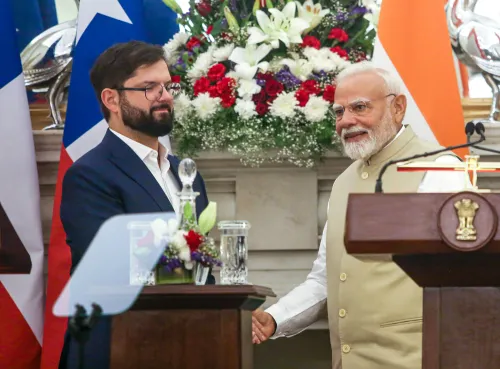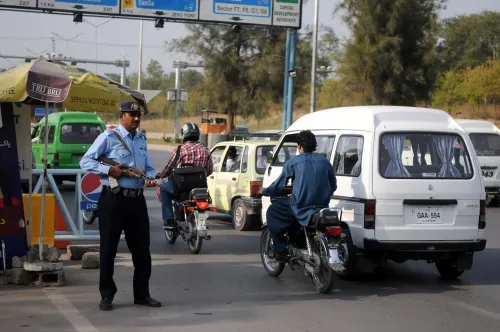Should We Avoid Contemplating Nuclear Escalation Between India and Pakistan?

Synopsis
Key Takeaways
- Both India and Pakistan are responsible nuclear states.
- Nuclear escalation should not be contemplated.
- Pakistan has not adopted a no-first-use policy.
- Western borders remain secure despite tensions.
- Dialogue is essential for regional stability.
United Nations, May 3 (NationPress) Although Kashmir is often labeled as a nuclear flashpoint, Pakistan's Permanent Representative to the United Nations, Asim Iftikhar Ahmad, stated that we should not consider such a scenario since both Pakistan and India act as responsible nations.
"Kashmir is frequently referred to as a 'nuclear flashpoint', but I maintain that Pakistan is a responsible nuclear state. I trust that India shares this level of responsibility as well, and we should not even think about a situation that could lead us in that direction," he remarked on Friday.
However, he did not deny that Pakistan does not adhere to a no-first-use nuclear policy.
In a news conference, Ahmad faced numerous queries about the nuclear implications of a potential confrontation between the two neighboring countries.
"Pakistan is a responsible member of the international community. Our responses to the evolving situation reflect our status as a responsible member state," he explained initially.
When pressed further about the nuclear aspect, he indicated that he intentionally avoided mentioning it because both nations display similar levels of responsibility.
When asked directly about Islamabad's stance on the no-first-use of nuclear arms, he sidestepped providing a clear answer.
"It is a publicly known policy; Pakistan's position on nuclear disarmament and related matters is well-documented," he stated.
His hesitance is due to Pakistan's non-adoption of a no-first-use policy, which leaves the option to use nuclear weapons first open. In contrast, India has established a no-first-use commitment.
A journalist questioned Ahmad about the conditions along the western border with Afghanistan and the Balochistan conflict and their potential influence on a confrontation with India.
He responded, "I do not believe these factors will impact our readiness to address any threats across the Line of Control in Kashmir."
"The western borders are completely secure," he affirmed.
"There are currently counterterrorism operations and law enforcement measures taking place there," he added.
Pakistan and Afghanistan forces have experienced multiple clashes along their border, and Islamabad has accused Kabul of providing refuge to the Tehreek-i-Taliban Pakistan (TTP), which has conducted cross-border assaults.
Moreover, Pakistan faces an insurgency from Baloch groups seeking independence.
Ahmad refuted claims of dogfights—aerial engagements—that a reporter suggested had occurred.
"There were reports about some drones being destroyed, but no aerial combat took place," he clarified.
"If the situation worsens and kinetic action is involved, such a scenario is very much a possibility," he concluded.









